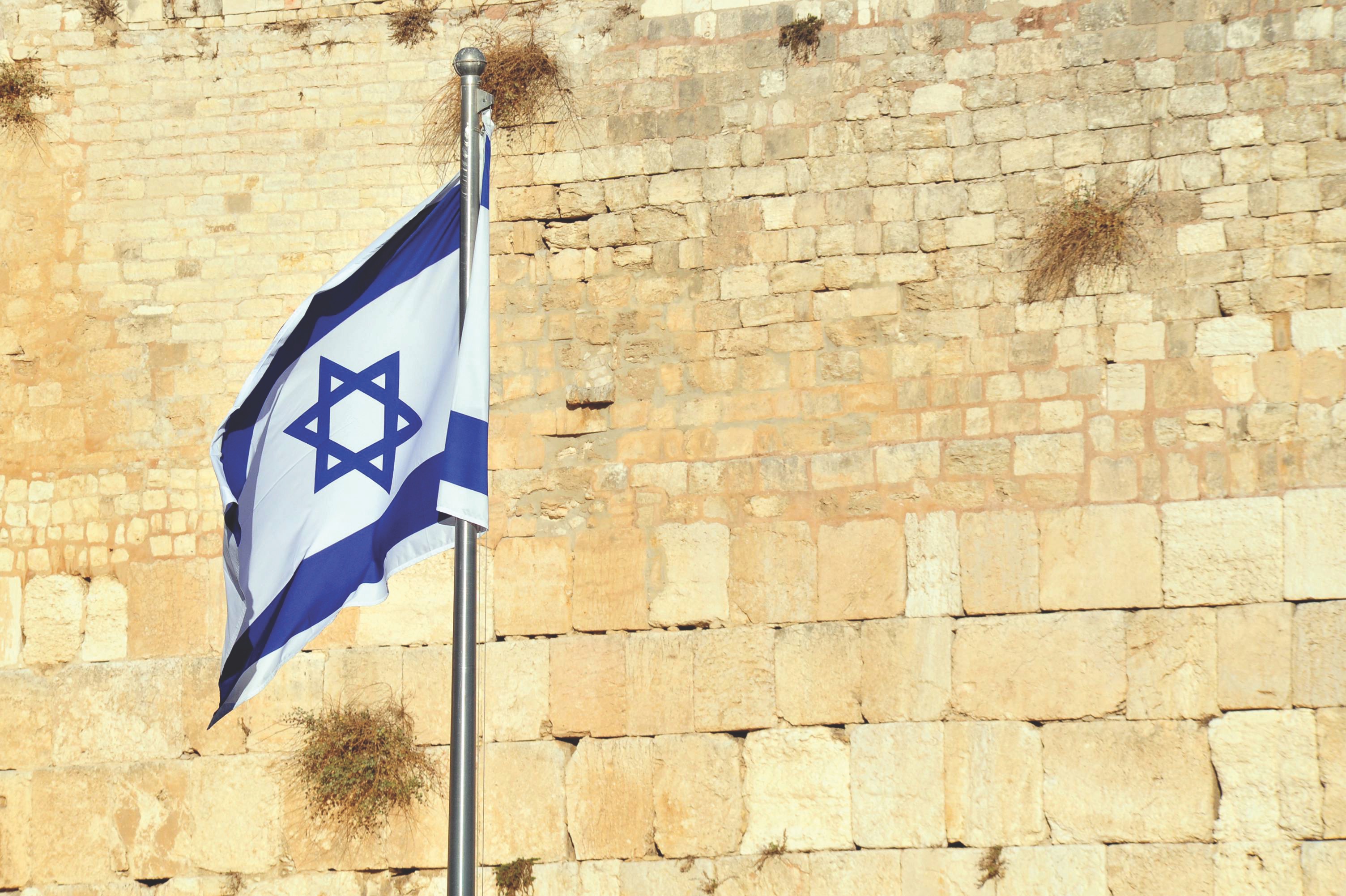
We all live with dichotomies, but possibly none is more powerful than our differing views about the idea of nationhood. In the 19th century, the emancipated Jew emerges with a profound belief in the power of modernity and the capacity to dream about and act upon the idea of forming a national homeland for the Jewish people. For the first time in 2,000 years Jews would be able to affirm their national pride and gain their own political identity.
Indeed, the unfolding events of the 20th century would embolden the Jewish people, both as Zionists reclaiming their dream of statehood and as political actors operating within the modern world. The Zionist case was built in part around the illusion that once the Jewish people obtained their homeland, anti-Semitism would dissipate, as Jews would no longer be treated as a marginalized community. To the contrary, as Jews were claiming their political legitimacy, the forces that have historically haunted our people, the enemies of our community and the emerging opponents of the Jewish state, were reinventing their case against Judaism and Zionism. The seeds of modern anti-Semitism would be established.
At each turn of this experiment in nation-building, there would exist “the idea,” with its various proponents offering definitions of the perfect Jewish national model; and then there would be the haunting realities of constructing and defending a new state amid an array of political and religious threats.
Just as the saga of Jewish nation-building culminated with the establishment of the State of Israel 70 years ago, the very political powers that endorsed the creation of Israel began to move beyond their own historic commitment to the nation-state system. In the post-World War II era, governments began constructing military, political and economic alliances, in part leaving Israel in an isolated and vulnerable position, bereft of any immediate partners. Jews had been given a state, absent any assurances that it could be sustained as a viable enterprise.
At the same moment, Jews would come to terms with their uneasy historic encounter with Christianity, as the Roman Catholic Church charted a new pathway forward in advancing Christian-Jewish understanding. These extraordinary events would be offset by the rise of radical Islam with its commitment to the destruction of Israel and the marginalization of the Jewish people. If Christianity defined much of Western Jewish history, Islam would emerge as the significant religious player in these times.
Over the course of its history, Israel’s relationship with its Jewish world partners has undergone a series of transitions. Against the backdrop of the Holocaust during the middle years of the 20th century, we would be reminded that Israel’s “survivability” would be seen as critical to the welfare of the Jewish enterprise. “One people, one destiny” would be the dominant motif during the first 20 years of statehood. In that era, Israel would enjoy a broad degree of Diaspora support.
“Sustainability” would be the defining element for the next quarter of a century. Here, the nature of the Jewish partnership, symbolized by the United Jewish Appeal campaign theme of the time, “We are One,” would rest on garnering and maintaining the political, economic and military support vital to Israel’s standing. This period would profoundly change Israel’s partners as much as it transformed the State of Israel.
As a result of the Six-Day War of 1967, we all became Israelis, as our pride and confidence soared. This transformative moment fundamentally changed a particular generation from being identified as “Jewish Americans” to becoming “American Jews,” as we no longer defined ourselves only through our religious standing but now saw our Jewishness as core to our identity.
Jews had been given a state, absent any assurances that it could be sustained as a viable enterprise.
Jews would be reborn as a new class of people, empowered to reconstruct its identity as well as the image of what Israel represented. For those of us who recall the extraordinary week of June 6, 1967, it would be transformative to our Jewish consciousness. There existed a unique sense of awe at what had happened and what it would mean. Over time, we romanticized these events, creating new images of the war while allowing its memories to forever shape our lives. That moment, however, also represented a distortion of the coming realities.
That time frame would also lay the foundation for the fundamental divisions over Israel’s definition of its character. It would generate the seeds defining the great political divide. Again, the idea of Jewish nationalism would be set against its core realities. The divisive issues of settlements, Palestinian rights, the divisions between religion and state, and a conversation around the character and substance of what it may mean to be a “democratic, Jewish state” would emerge over the succeeding decades.
Over these past 25 years, Israel would move away from those themes that reflected its earlier vulnerable position to one that might be seen as “symbolic” or even as an exemplar of political and social ingenuity as the Jewish state emerged as a technologically accomplished “startup” nation with a sophisticated economy and an advanced military. In this third phase, Israel transformed itself from its dependency role to being the dominant player in global Jewish matters. But this moment in time also created a fundamental disruption in its historic partnership with its Diaspora as a widening divide unfolded.
One can find deep divisions today between the liberal-orientated attitudes of a majority of American Jews and the center-right views of the government in Jerusalem and its supporters over such complex issues as settlements and human rights. More particularly, some Jewish Americans are uncomfortable with recent Israeli initiatives and proposals that seek to curb the free speech rights of Boycott, Divestment and Sanctions movement supporters and legislation denying admission into the Jewish state of individuals associated with specific anti-Israel movements. Just as American-Jewish liberals defended the Obama administration’s record on Israel, supporters of President Donald Trump embrace his policies in connection with the Jewish state, creating a significant political conflict among Israel’s historic partners.
Israel defenders have argued on what basis should Diaspora communities have the right to publicly critique Israel over its policies and actions? Ought that “right” be left to the citizens of the Jewish nation? Responders from the Diaspora push back, challenging that assumption, noting that Israel was created as the collective expression of the Jewish people, and as such, all Jews not only have the right to express their views but have an obligation to assert their ideas. Once again, the idea of Israel would come up against the realities of its politics.
Beyond these internecine battles, the question of how the international community ought to engage Iran or the issue of what constitutes anti-Semitic behavior in connection with dissent around Israel remind us of other elements contributing to this deep crevice that today defines these conversations.
In place of creative dialogue, one finds only disagreement and discord. Some American-Jewish critics’ arguments are framed in moral terms, suggesting that Israel “ought” to be held to a higher standard. In their minds, Israel is failing at this point to live up to the Jewish values that have informed and shaped the state’s Zionist heritage. For Jewish Americans who express their disappointment or despair over Israel’s move to the political right, the state has lost their trust. Israel’s political establishment is seen as either politically corrupt or operating around a set of deeply flawed assumptions. Adding to these divisions, as demonstrated by the most recent population studies, the declining levels of Jewish engagement with Israel, especially on the part of younger Jews, present another challenge to Israeli authorities and to American-Jewish leaders. The image of a perfect Jewish society is yet again challenged by its political realities.
As these debates unfold, the Jewish opponents of Israel’s politics are dismissed as misguided or worse, undermining the Jewish state by their betrayal to defend and protect this historic experiment in nation-building. Each side offers descriptions of the other seeking to minimize the political standing of their opponents, while reasserting their own definition of the state’s meaning. To advance our various perspectives, we have introduced terms such as naïve, foolish, destructive and disingenuous, which we employ to define the “other.”
Israelis and American Jews have their respective visions or images of the Jewish state. Some of these fixed notions today have become labels that we place on one another. Israel’s “romantics” are identified as individuals still holding onto an earlier image of the state’s Zionist origins. Others might be described as “political realists” because they focus on the multiple military and security threats that have defined the state’s history and remain its core challenges. Possibly, a third constituency could be defined as “bound by history,” in which specific events, such as the Oslo Accord and its promise of peace, resonate as the pivotal moment in Israel’s diplomatic journey. For this cohort, particular personalities or events have ultimately defined their vision of how the state ought to act and what it must become.
Upon reflection, with its enthusiastic endorsement of Donald Trump, Israel symbolically might serve as an ideal “red state” base for this president; contrastingly, many American Jews might metaphorically represent a “blue state” constituency, with their overriding opposition to this White House along with their current discomfort, even disillusionment, with Israeli policies. Again, labels and images are employed to establish our credentials as “realists” or “idealists” in constructing our expectations for Israel.
The internal disagreements among Israelis represent a different type of contest over the Jewish state’s political destiny. Inside the land, these wars around national perspectives take on a geopolitical battleground engaging “the state of Tel Aviv,” with its secular, liberal orientation, against “the state of Jerusalem,” with its traditional religious, politically conservative orientation.
With the rise of the “intersectionality” debate in this nation, many American Jews are being forced to choose between their social justice priorities and their Zionist passions. Maybe for the first time in American history, Jews are engaging with allies on specific issues of discrimination and victimhood where they find common ground, yet knowing that these “friends” espouse views that may be perceived as anti-Israel because this movement seeks to incorporate Israel as a purveyor of racism.
On this anniversary of Israeli statehood, how can we find common ground as our various images and expectations of Israel come up against its political realities? We are dramatically reminded that this experiment in state-building is a relatively new venture in the annals of Jewish history, hardly a significant period of time to develop a mature, sophisticated understanding of how a nation, its citizens or its Diaspora partners “ought” to behave and operate. Jewish history readily informs us that where our people remain in discord between our historic expectations and the realities of nation-building, the political outcomes have been unsettling and even problematic.
Steven Windmueller is the Rabbi Alfred Gottschalk Emeritus Professor of Jewish Communal Studies at the Hebrew Union College-Jewish Institute of Religion, Los Angeles. Windmueller’s writings can be found on thewindreport.com. A version of this article originally appeared on eJewishphilanthropy.com.























 More news and opinions than at a Shabbat dinner, right in your inbox.
More news and opinions than at a Shabbat dinner, right in your inbox.